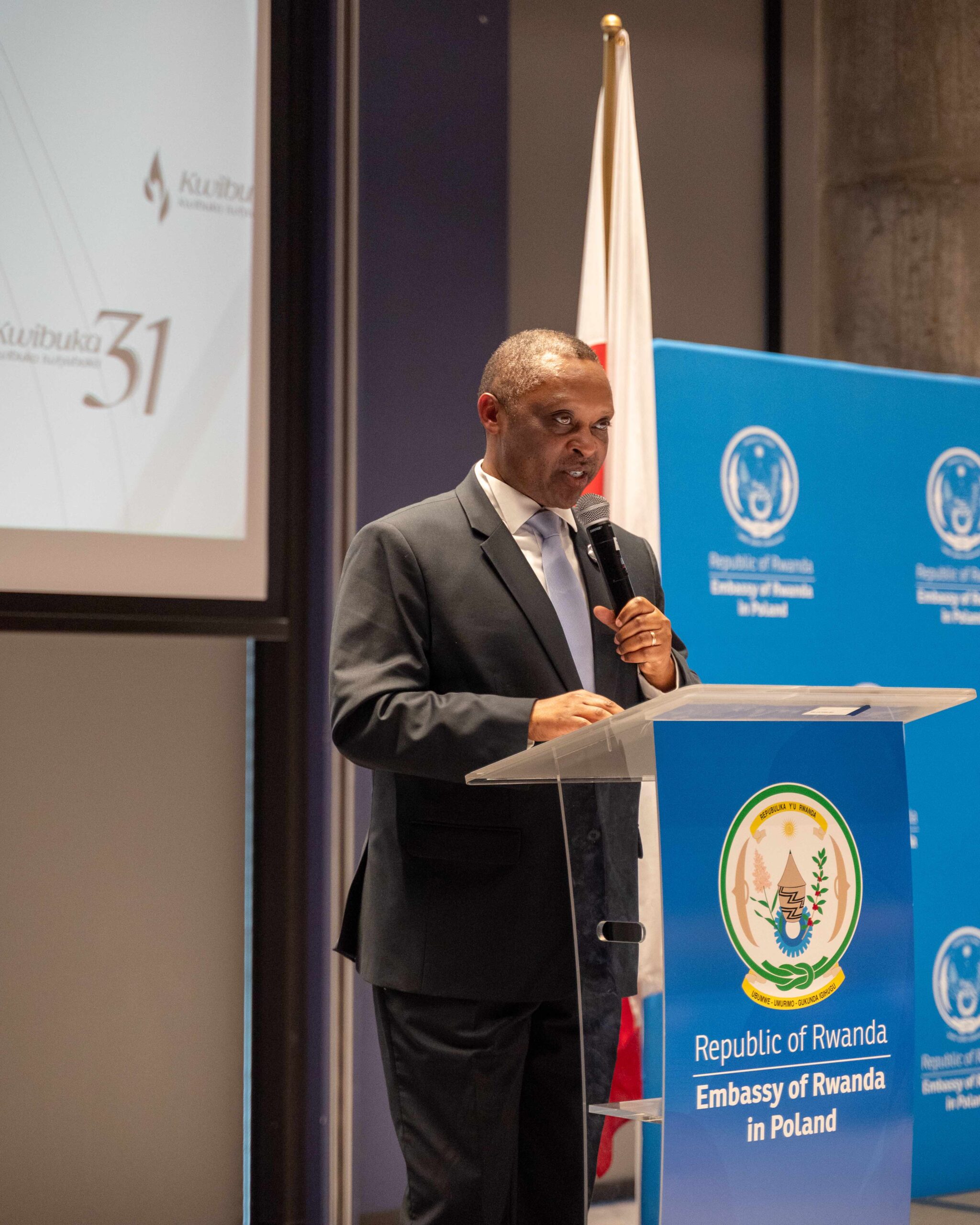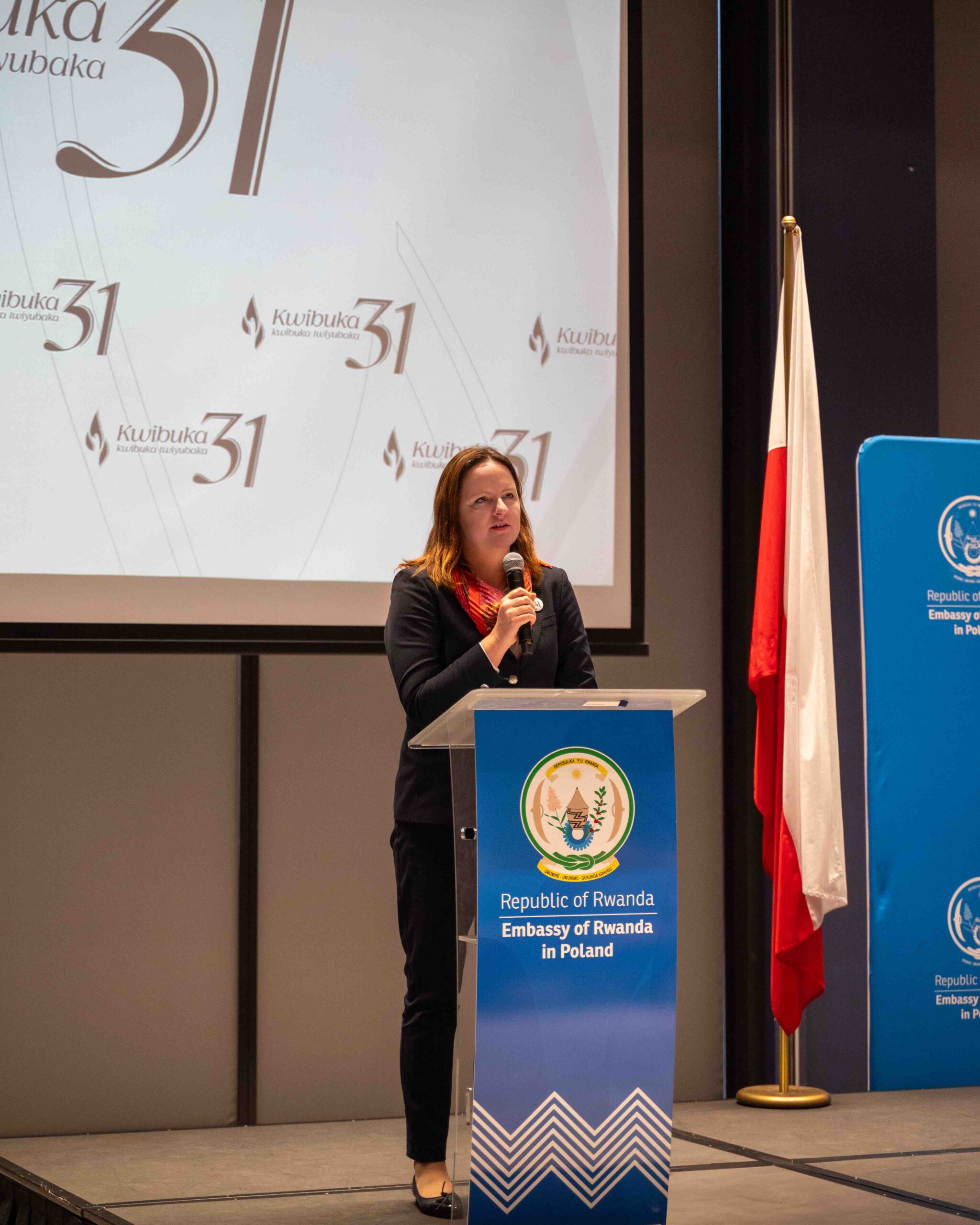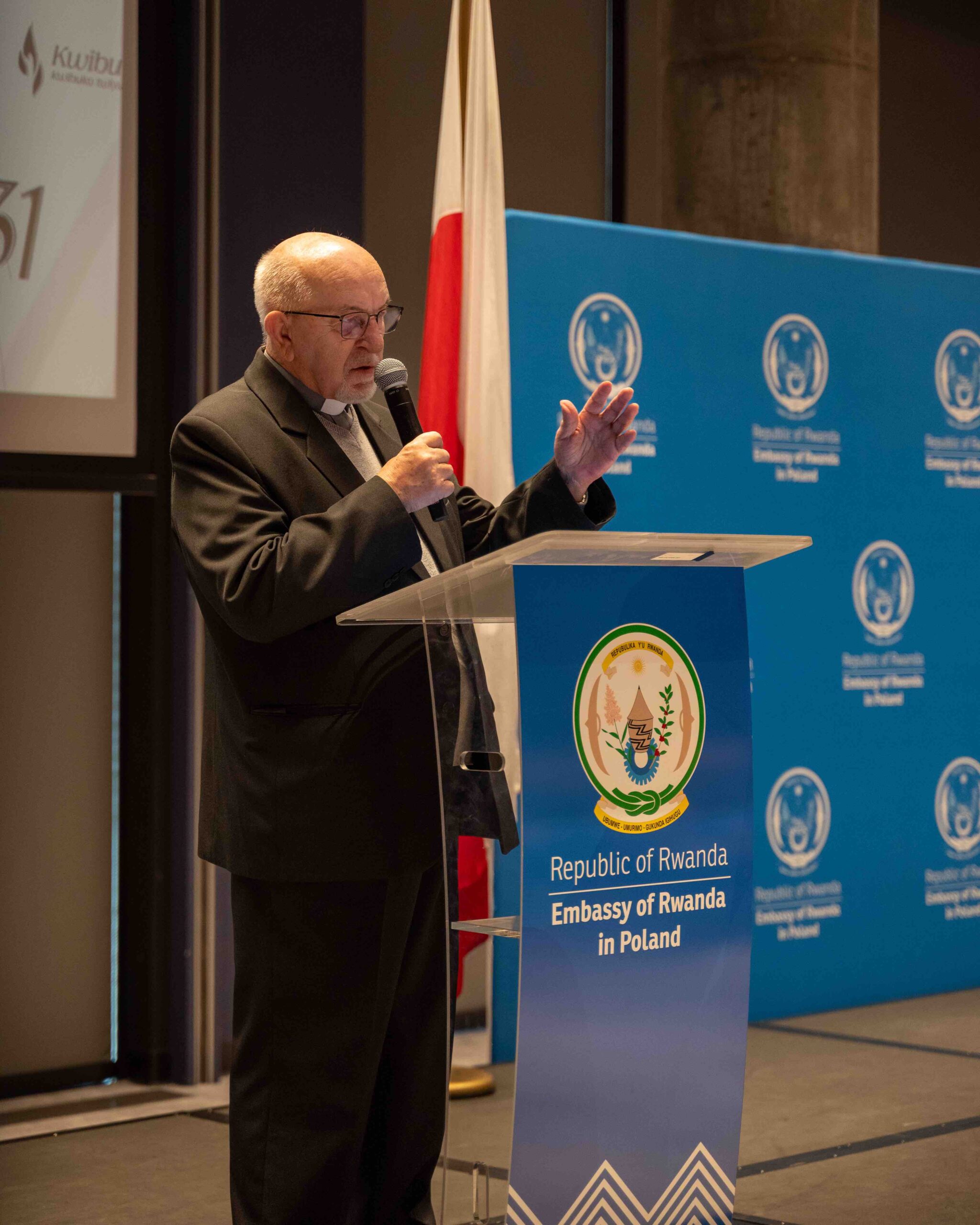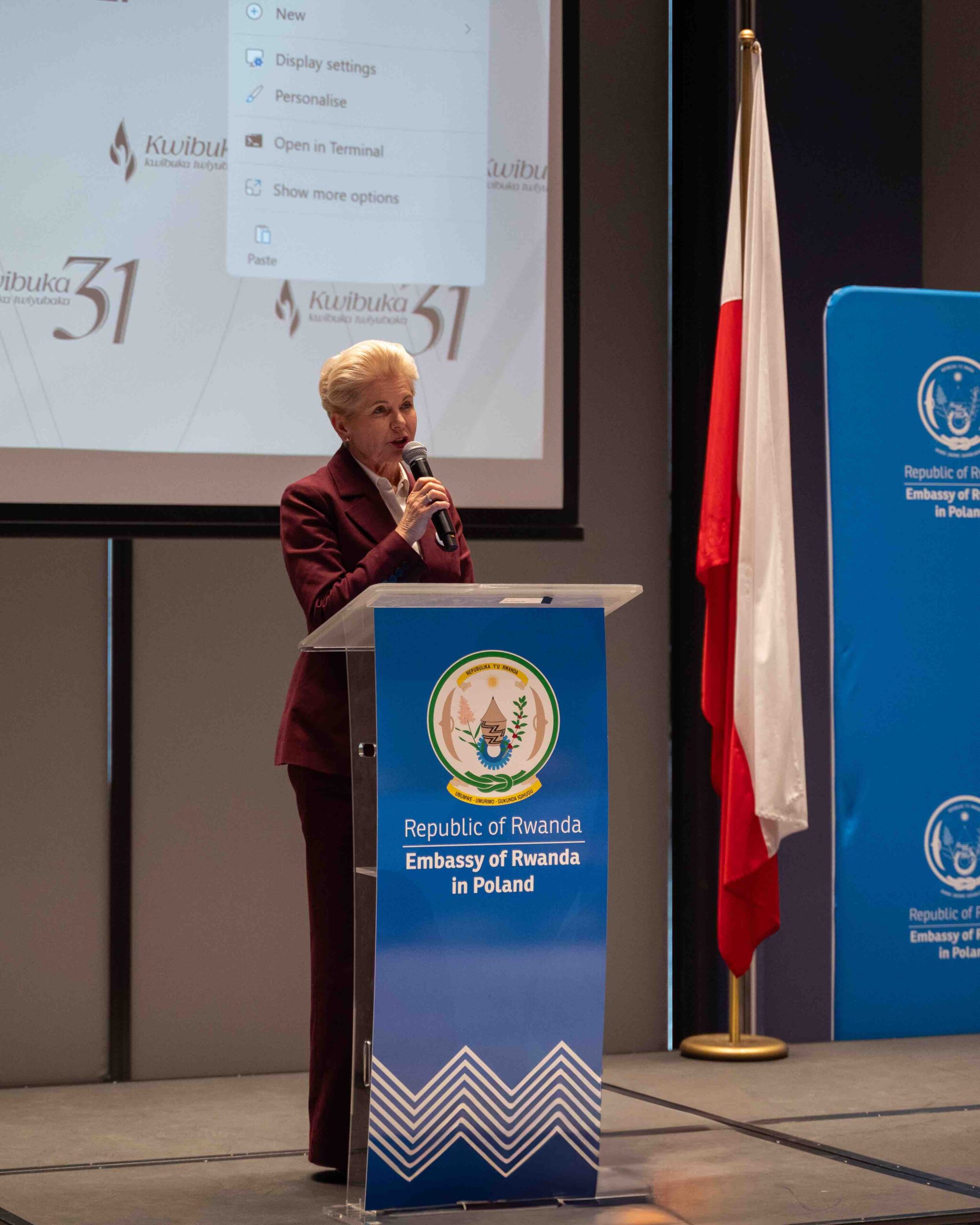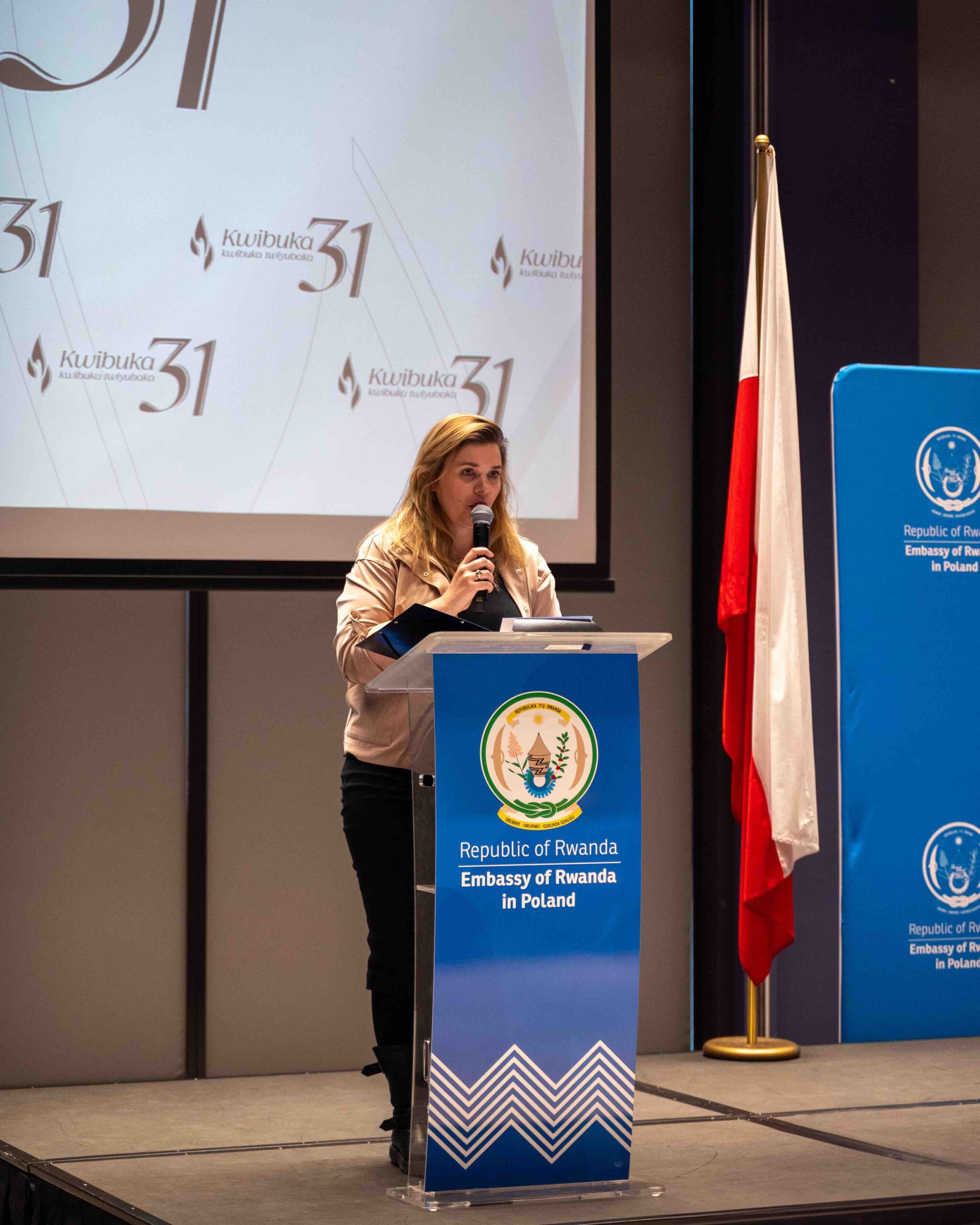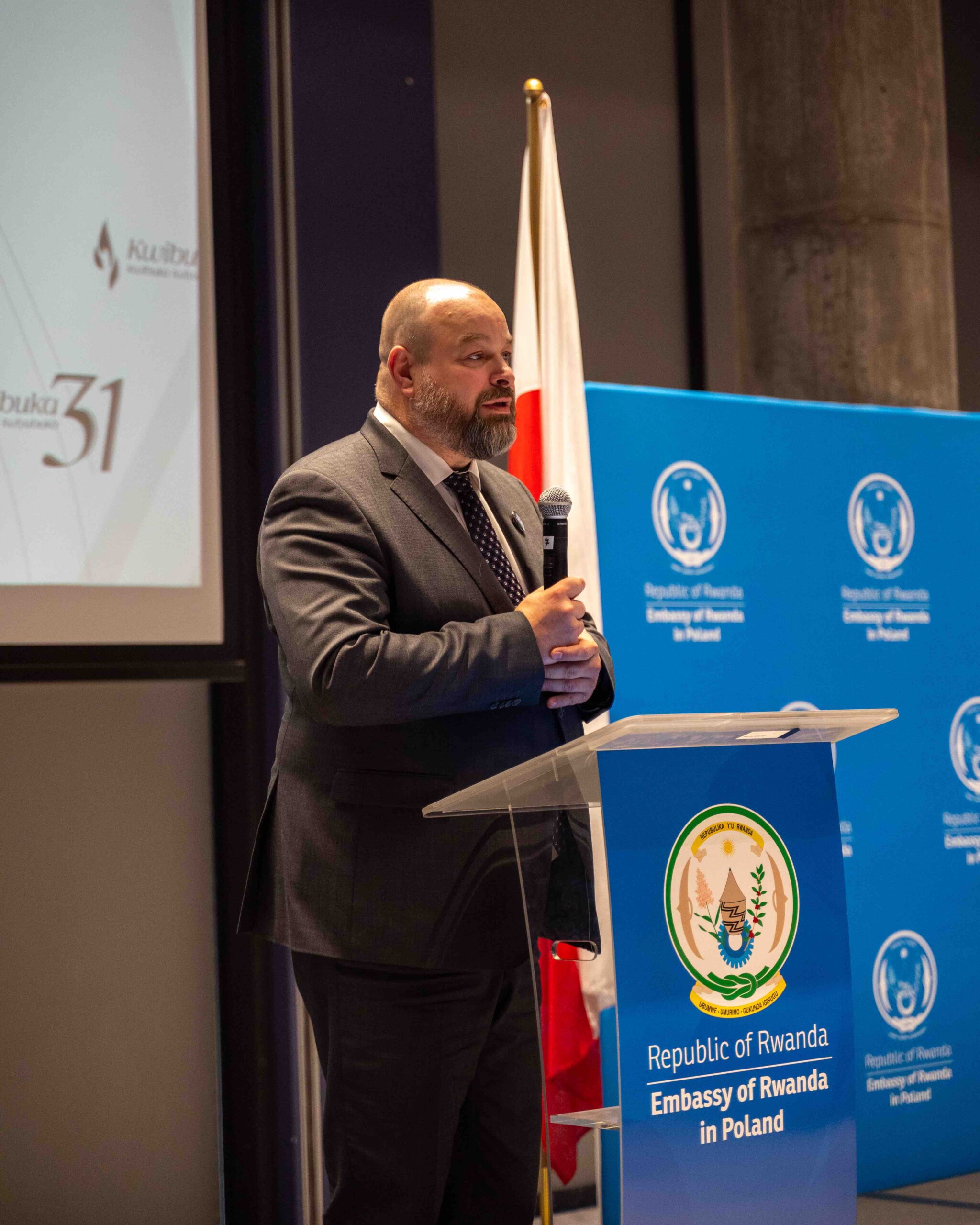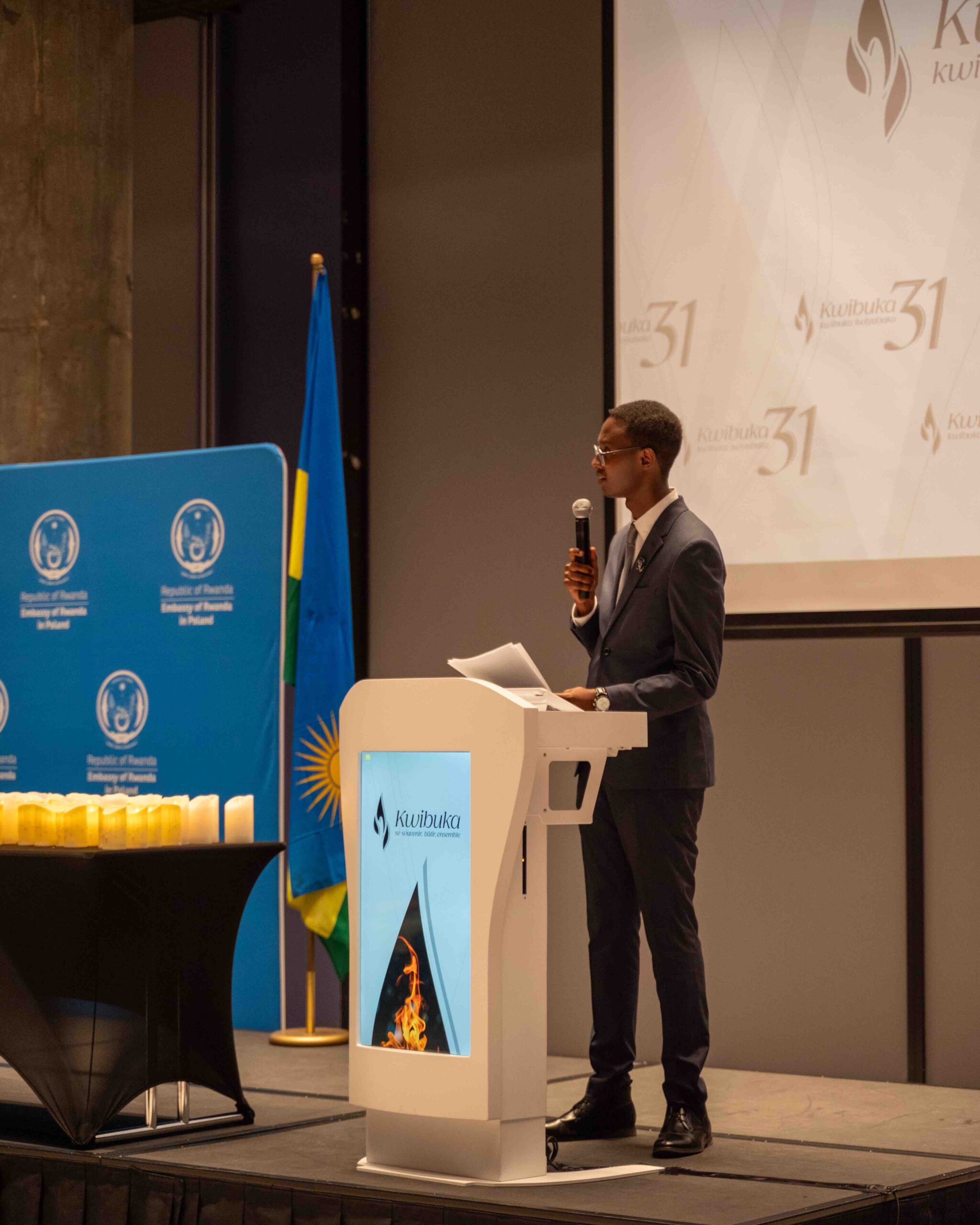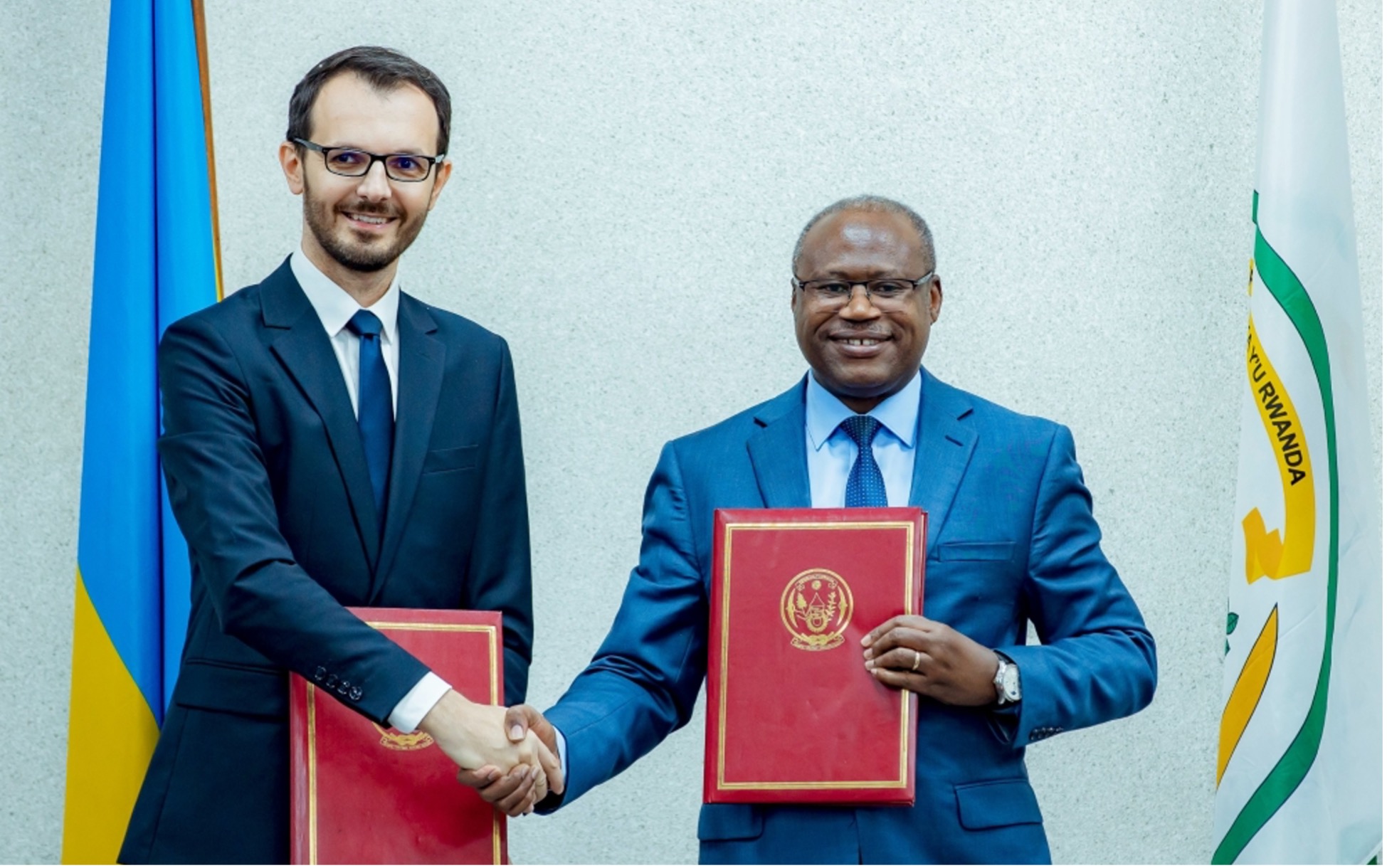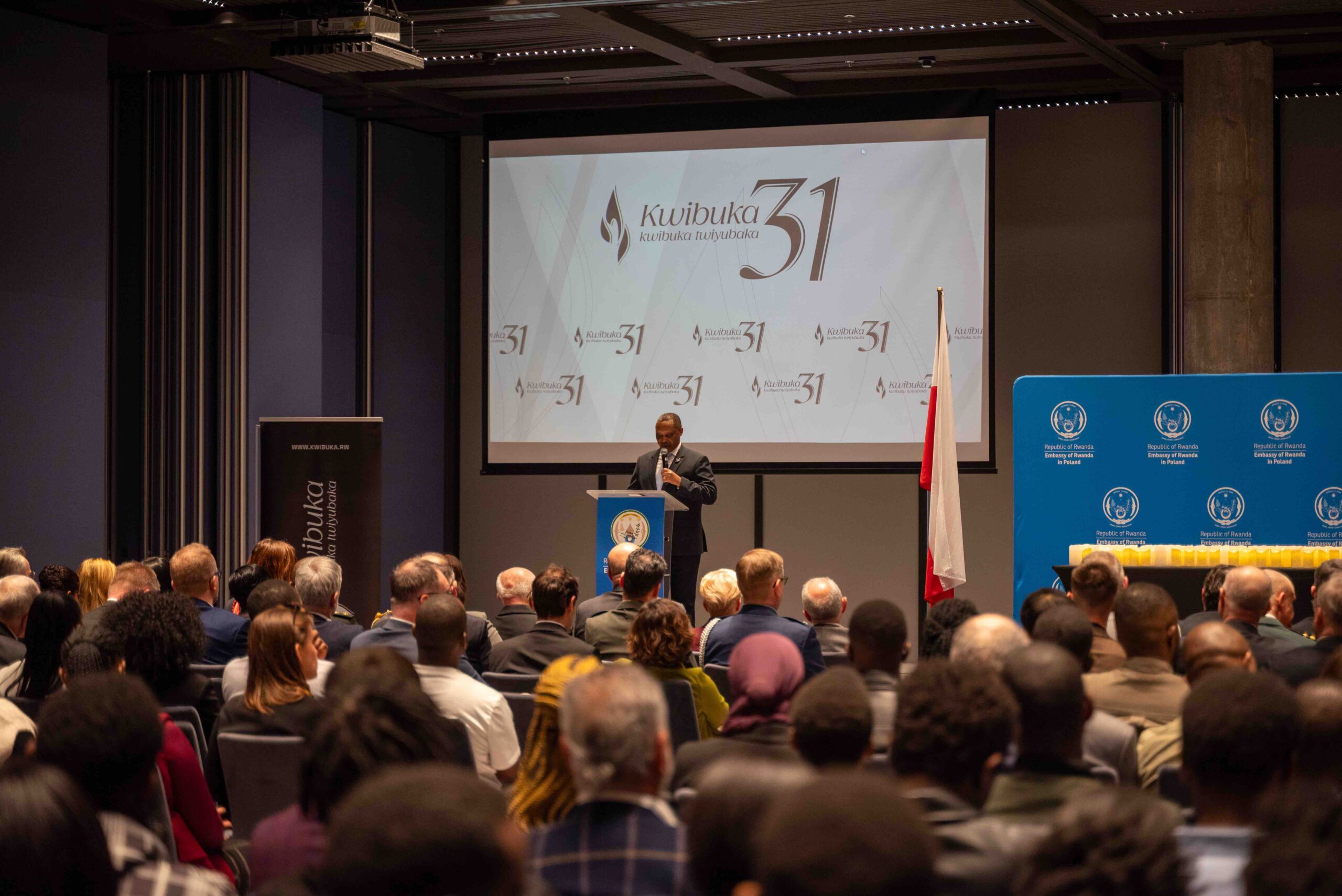
The ceremony brought together government officials, members of parliament, ambassadors, diplomats, CEOs, academics, and many friends of Rwanda from across Poland.
In his key note address , His Excellency Prof. Shyaka Anastase, the Ambassador of Rwanda in Poland, shared deep reflections and messages of unity, remembrance, and hope for Rwanda’s future.
Ambassador Shyaka warmly thanked all the guests who came to stand with Rwanda on this important day. He appreciated their friendship and support, especially highlighting the presence of:
- Hon. Anna Radwan, Minister of State in the Ministry Foreign Affairs of Poland
- Hon. Senator Beata Libera,Member of the Polish Parliament
- Professor Zasada, Rector of SGGW
- Ms. Ola Cholewa from LuNa Smelter
- Father Urbaniak, the Guardian of the Covenant (Umulinzi w’Igihango)
He also expressed his deep thanks to the Rwandan Community in Poland (RCA-PL), who traveled from different cities to be part of this special moment.
In his speech, Ambassador Shyaka focused on three main points:
- Understanding the Roots of the Genocide
He explained the root causes of the Genocide against the Tutsi in 1994, linking it to the long-term effects of colonialism. The colonial powers introduced dangerous divisions and ideologies that planted hatred among Rwandans. These ideas led to the tragedy that shocked the world.
- Regional Peace and the Responsibility of the International Community
President Paul Kagame, who said at Kwibuka31 in Kigali:
“We face a dark past and a cruel present,”
Ambassador Shyaka reminded the world that Rwanda and the Great Lakes region still face many challenges. Sadly, the international community often fails to respond with the urgency and support needed to bring peace and security. He called for stronger global cooperation and fairness.
- Rwanda’s Strength: Resilience and Home Grown Solutions
Ambassador Shyaka shared what he learned from working with fellow Rwandans to rebuild the country after the genocide. He spoke about the incredible power of Rwanda’s resilience and the success of Home Grown Solutions (HGS) – local ideas created by Rwandans for Rwandans.
One powerful example is the Gacaca courts, which helped communities find justice and forgiveness after the genocide. Thanks to these efforts, Rwanda rebuilt social unity and peace.
In her speech , Hon. Anna Radwan,Deputy Minister of State in the Ministry Foreign Affairs of Poland said that, Kwibuka means “to remember,” and remembrance is the first step in building mechanisms that protect our nations and societies from being divided by hatred again.
We live in an unstable world, where the threat of ethnic based hatred still exists. A painful example is the ongoing Russian war crimes in Ukraine. The best safeguard we have is to never forget the victims of the past and to always remember our history.
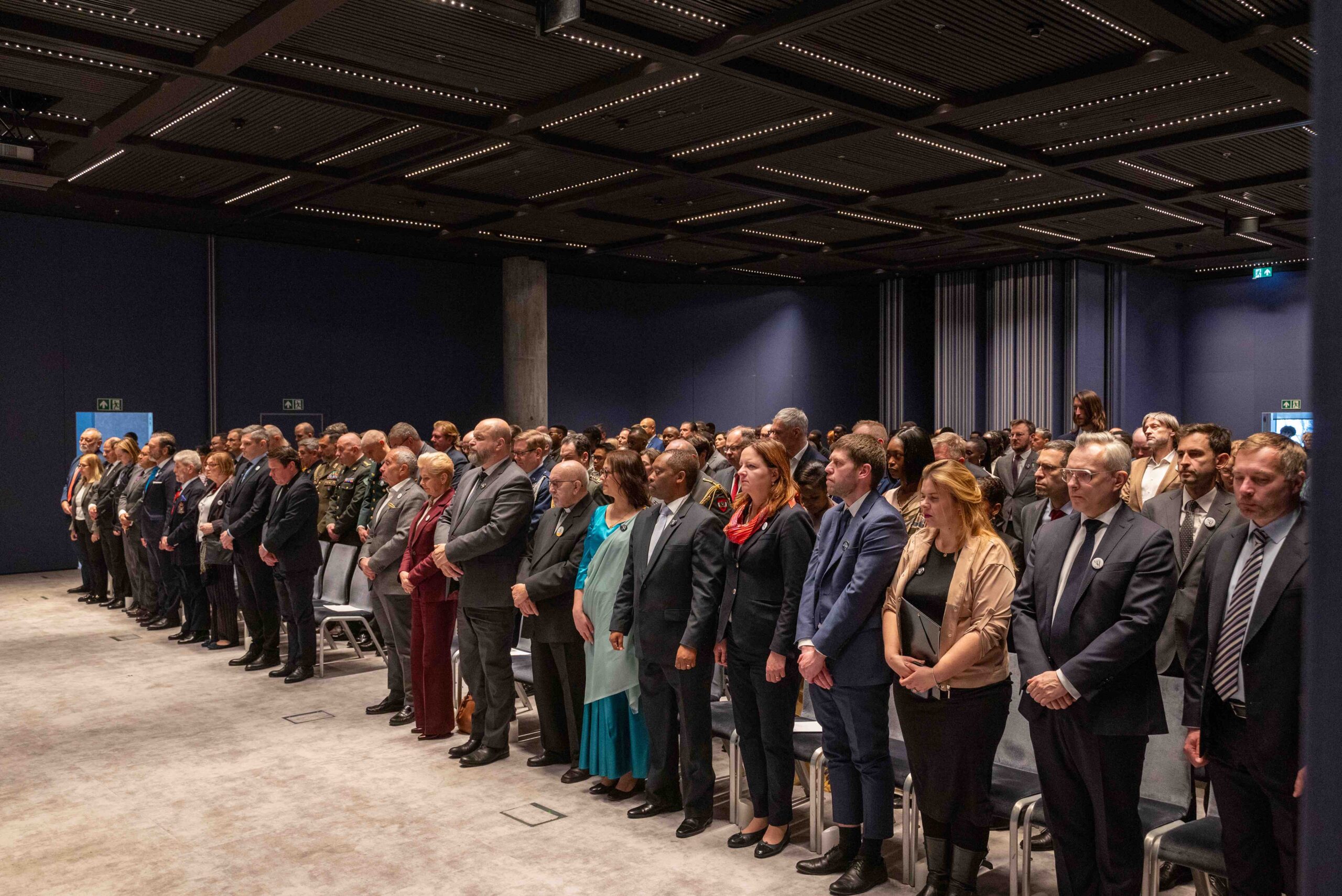
Can Rwanda be allowed to solve its own problems using its own ideas?
Can Rwanda be free to innovate, grow, and cooperate with others to build a better society?
And when we choose to stand united as One People – Abanyarwanda, can we be supported, or at least not stopped?
He ended his speech with a strong reminder:
“TWIBUKE Jenoside yakorewe Abatutsi – TWIYUBAKA.”
Let’s remember the Genocide against the Tutsi – as we continue to rebuild.”




